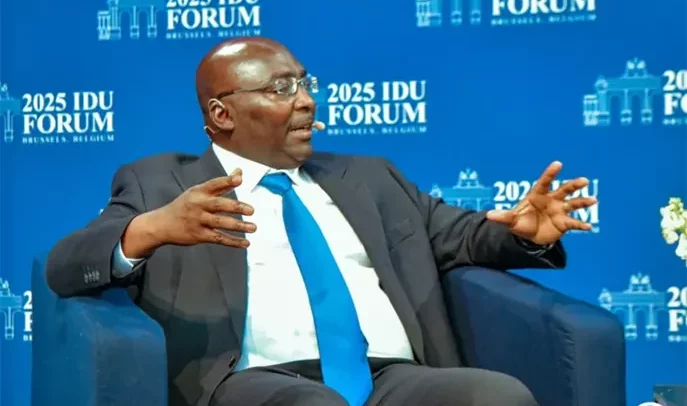Dr. Mahamudu Bawumia
Former Vice President, Dr. Mahamudu Bawumia, has urged African leaders, innovators, and policymakers to seize the moment and define the continent’s digital future through deliberate and collaborative effort.
He emphasised that Africa’s digital trajectory is not a foregone conclusion, but one that must be shaped with purpose and urgency.
“Africa’s digital future is not pre-determined. We must forge it, deliberately, boldly, together, and now,” Dr. Bawumia declared in his keynote address at the Cambridge Africa Business Conference at the weekend.
Framing digital transformation as a critical necessity rather than an option, he stressed that the continent’s economic resilience, social equity, and global competitiveness depend on how it leverages technology today.
Drawing from his eight-year tenure as Vice President of Ghana, Dr. Bawumia detailed how digital innovation underpinned the country’s transformation in public service delivery, financial inclusion, and economic formalisation.
He outlined a strategy he termed “smart formalisation”—a system of digitally driven governance that enables effective interaction between citizens and the state, reduces inefficiencies, and fosters inclusive development.
“Digitalisation allows us to leapfrog outdated systems and build resilience in a continent historically weighed down by inefficiencies,” he said, highlighting Ghana’s implementation of biometric ID systems, digital property address platforms, mobile money interoperability, and digitised health services as models that other African nations could adopt and scale.
Dr. Bawumia warned, however, that Africa must not be a passive player in the unfolding Fourth Industrial Revolution.
He cited the dominance of global tech giants such as Microsoft, Apple, and NVIDIA—each with market capitalisations exceeding Africa’s entire GDP—as a wake-up call for the continent to assert itself in the digital economy.
“AI presents a unique opportunity, but also a real threat. If we do not define our place in the AI revolution, we risk being left behind again,” he cautioned.
He called for investment in digital infrastructure, including broadband, data centres, and mobile networks, alongside human capital development in coding, AI, and cybersecurity.
Dr. Bawumia also advocated digital sovereignty, emphasising that Africa must own and manage its data to avoid becoming marginalised in the global digital ecosystem.
“Our story must not be one of exploitation but of empowerment. We must build systems that scale innovation, retain talent, and protect our data,” he stressed.
Underscoring the importance of collaboration, he praised initiatives such as the African Continental Free Trade Agreement (AfCFTA) and the Pan-African Payment and Settlement System as steps toward a unified digital market.
He urged institutions like the University of Cambridge to partner with African thinkers and technologists, not as observers, but as co-architects of the continent’s transformation.
Dr. Bawumia challenged the audience to envision an Africa where innovation thrives and is normalised, where technology connects farmers to global markets, and where young entrepreneurs are empowered through digital tools.
“The tide is turning,” he said, adding, “Africa’s digital future is ours to build, if we act together, boldly and now.”
By Ernest Kofi Adu


